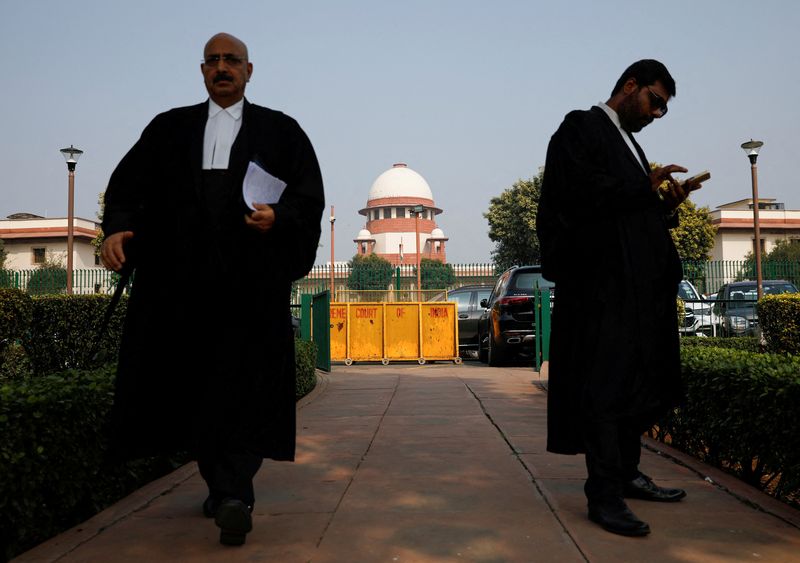By Arpan Chaturvedi
NEW DELHI (Reuters) - Soaring temperatures in India's capital have proven to be too much for some courts and are putting to the test a law in place since 1961 that requires lawyers to wear heavy black robes and coats.
At least three High Courts have permitted lawyers to discard the robes and coats for the summer, although the Supreme Court is being urged to make it a general rule for all lawyers in the country.
Judges at one New Delhi court postponed a case this week until later in the year, complaining about a lack of air conditioning and water supply.
While India's Supreme Court and most High Courts have air conditioning, many lower courts and consumer forums depend on fans and have poor ventilation.
New Delhi recorded temperatures of around 50 degrees Celsius (122 Fahrenheit) for the first time this week, forcing authorities to restrict water supply, shut schools and set up heatstroke units at hospitals.
They have also deployed paramedics to polling stations for the final day of India's massive general election on Saturday in case any voters fall ill as they queue in the heat. A 40-year-old labourer died of heat stroke on Wednesday.
The northwest of India has been experiencing high temperatures for several weeks. India's Meteorological Department has predicted two or three times the usual number of heat wave days in the region this month, or days defined by abnormally hot weather.
For Delhi, that means sweltering temperatures that are effecting people across the city, including its legal system.
At a consumer court in the southwestern district of Dwarka, which Reuters visited on Thursday, judges presided over cases against insurance companies in a courtroom fitted with two non-functioning air conditioners. Ceiling fans and open windows offered the only respite from the weather.
Three of the court's judges issued a written order this week stating they had declined to hear a case due to high temperatures in the court room. They adjourned the case for the cooler month of November.
"There is neither air conditioner nor cooler in the court room ... There is too much heat. There is no water supply even to go to the washroom to ease ourselves ... In these circumstances, arguments cannot be heard," the order said.
In 2021, India's then chief justice said courts "still operate from dilapidated structures without proper facilities", which was "severely detrimental" for both litigants and lawyers.
A Delhi-based lawyer, Shailendra Mani Tripathi, has taken the matter to the Supreme Court, asking justices to change the decades old dresscode.

Black coats absorb more heat and endanger health, Tripathi says in his filing, which the justices have yet to hear.
Forcing lawyers to wear them "is neither fair nor reasonable," he says.